Is a Backyard Pool Worth It? 10 Things to Know Before You Buy a House With a Pool
Before you dive into a home with a pool, consider the hidden costs, upkeep and insurance surprises that come with it.

Profit and prosper with the best of Kiplinger's advice on investing, taxes, retirement, personal finance and much more. Delivered daily. Enter your email in the box and click Sign Me Up.
You are now subscribed
Your newsletter sign-up was successful
Want to add more newsletters?

Delivered daily
Kiplinger Today
Profit and prosper with the best of Kiplinger's advice on investing, taxes, retirement, personal finance and much more delivered daily. Smart money moves start here.

Sent five days a week
Kiplinger A Step Ahead
Get practical help to make better financial decisions in your everyday life, from spending to savings on top deals.

Delivered daily
Kiplinger Closing Bell
Get today's biggest financial and investing headlines delivered to your inbox every day the U.S. stock market is open.

Sent twice a week
Kiplinger Adviser Intel
Financial pros across the country share best practices and fresh tactics to preserve and grow your wealth.

Delivered weekly
Kiplinger Tax Tips
Trim your federal and state tax bills with practical tax-planning and tax-cutting strategies.

Sent twice a week
Kiplinger Retirement Tips
Your twice-a-week guide to planning and enjoying a financially secure and richly rewarding retirement

Sent bimonthly.
Kiplinger Adviser Angle
Insights for advisers, wealth managers and other financial professionals.

Sent twice a week
Kiplinger Investing Weekly
Your twice-a-week roundup of promising stocks, funds, companies and industries you should consider, ones you should avoid, and why.

Sent weekly for six weeks
Kiplinger Invest for Retirement
Your step-by-step six-part series on how to invest for retirement, from devising a successful strategy to exactly which investments to choose.
Buying a home with a swimming pool in the backyard will certainly score you bragging rights around the neighborhood, especially during the heat of the summer. However, there's much more to pool ownership than planning deckside parties and kids' playdates. For starters, maintaining a pool is time-consuming and expensive, especially with the increasingly high cost of living. Plus, there are safety hazards to consider.
We've interviewed many real estate experts about the pros and cons of owning a home with a pool and there are certainly negatives to weigh up.
Costs are a notable factor. Most of the costs for operation, maintenance and repairs listed below are national averages for in-ground swimming pools, based on data provided by HomeAdvisor.com, a website that tracks home-improvement costs.
Here are 10 of the biggest regrets that homeowners with a pool often have.
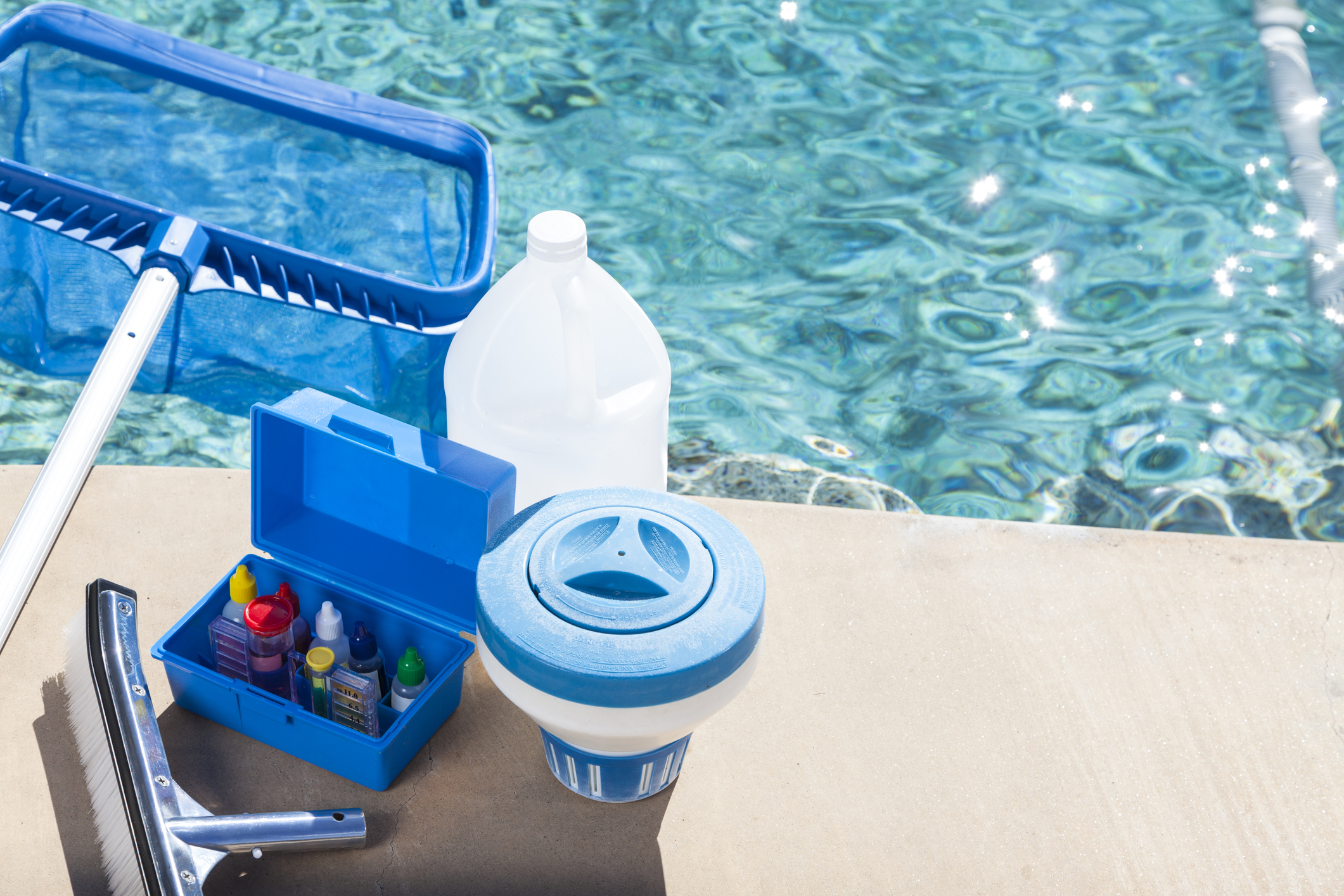
#1: Routine maintenance is costly
Owning a home with a pool provides a convenient source of fun for the entire family. Though you'll be on the hook for regular (and expensive) maintenance when the pool is in use. In temperate areas such as Washington, D.C., pool season typically stretches from Memorial to Labor Day, but in places such as Florida and Arizona pools are used year-round. This can add up.
Experts recommend that a pool be cleaned weekly when in use. As part of the cleaning process, the pH level will need to be tested to ensure the alkalinity isn't too high or low. The wrong level could make the water too acidic or reduce the effectiveness of the chlorine. When this happens, the water is no longer safe for swimmers and can cause corrosive damage to the pool's surface and equipment.
If you don't clean the pool yourself, you'll need to hire a pool maintenance service — and that expense can quickly tally up. Pool owners spend between $115 to $353 to have their pool maintained weekly by a professional, according to HomeAdvisor.com. The national average is $234. A service includes skimming the water's surface for floating debris, vacuuming the pool floor, brushing the walls, cleaning the filter and checking the water and pH levels. That’s roughly $936 spent on monthly maintenance.
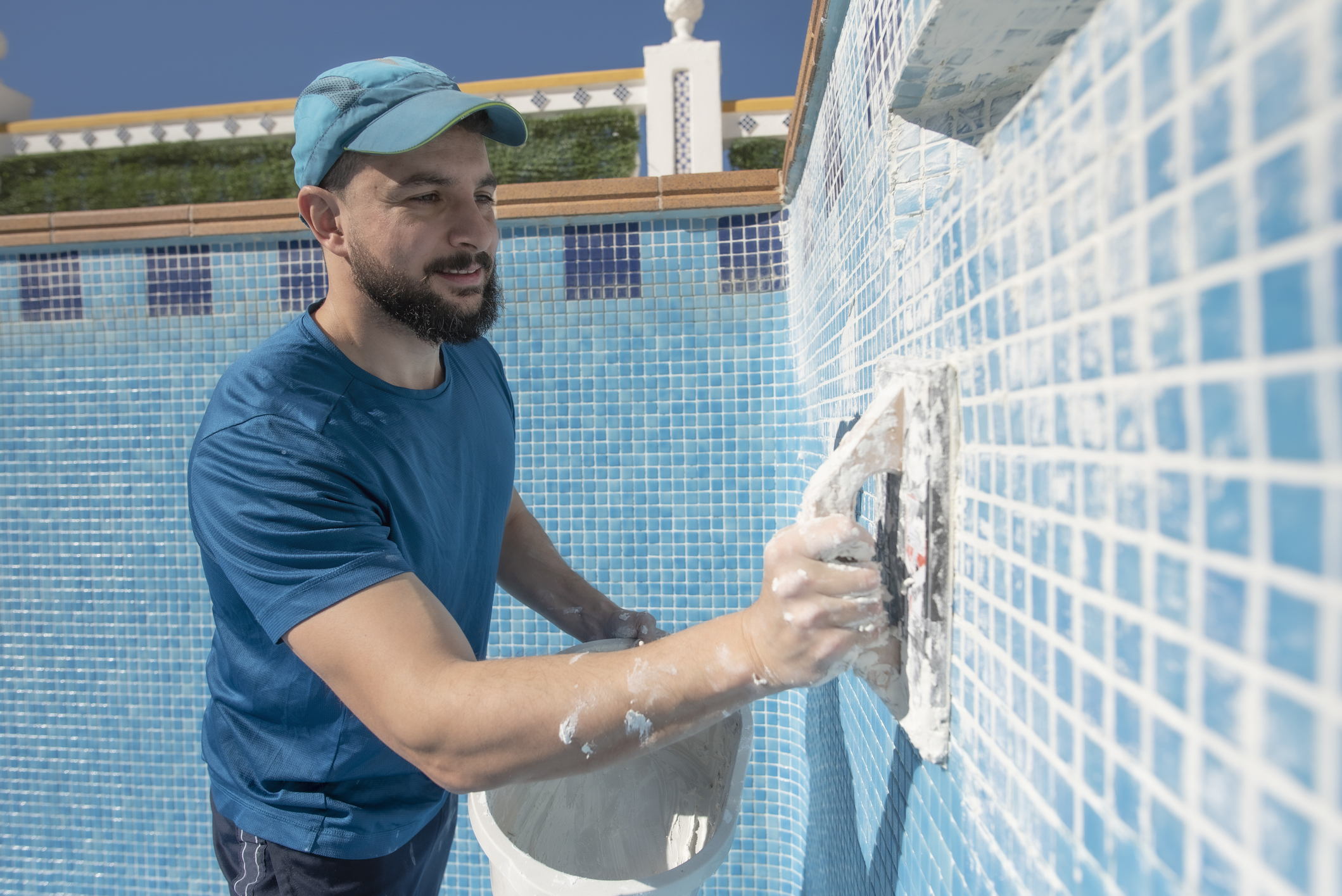
#2: Repairs are even costlier
A tear in a swimming pool's lining is a common issue encountered by pool owners. The liner acts as a barrier between the pool walls/floor and water, helping prevent mold growth. Vinyl lining is popular due to its affordability but repairing it can cost anywhere between $1,000 and $6,000 depending on how big the tear is, says HomeServe. If it’s small enough, you may be able to repair it yourself with a vinyl pool liner patch kit (starting at $5 on Amazon).
If a gradual decrease in water level leads you to suspect a slow leak, professional help might be needed to find and fix the problem. This will cost you anywhere from $100 to $500. If there's a leak in your pool's plumbing — which could affect the filter pump and heater later — you'll need to have an expert assess the damage. The average cost to fix a plumbing leak is $704.
It’s best to get ahead of these problems. When considering a home with a pool, ask the seller about any previous repair work, says Frank Lesh, founder of Home Sweet Home Inspection Company. Find out the specific type of repairs and when they were completed. A pattern of issues could be a sign of a larger, costlier repair to come.
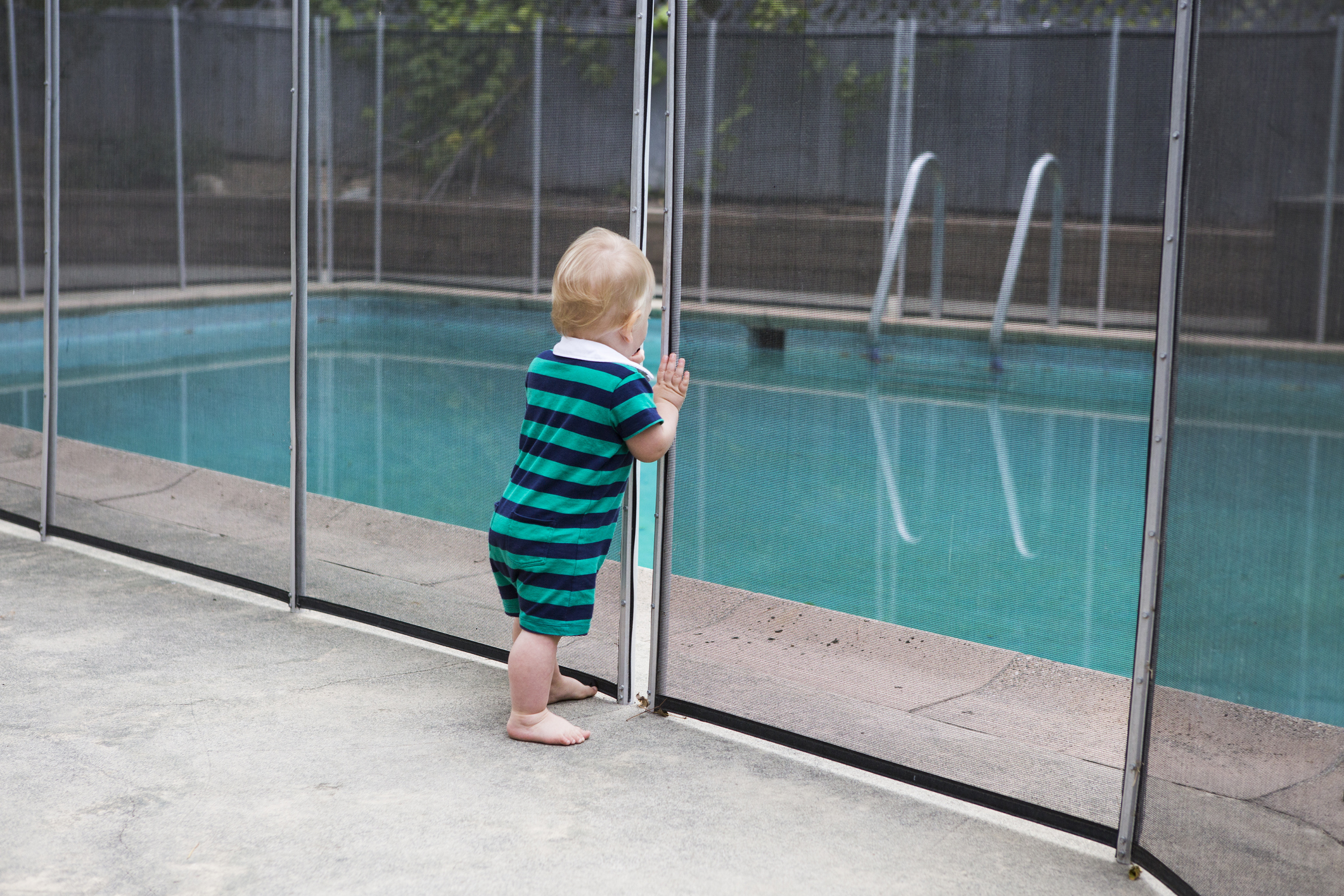
#3: Safety risks abound
Nearly 379 children under the age of 15 drown in backyard swimming pools every year, according to the Consumer Product Safety Commission (CPSC). Children younger than 5 years old account for about 75% of these drownings, more than half of which are attributed to a gap in adult supervision.
Many localities require a safety barrier to be installed around a residential pool to help prevent accidental drownings. So be sure to install a separate fence around the pool and not just the backyard. If you have small kids at home, consider buying a fence with a self-closing door and locking mechanism that's out of their reach, says Mary Roberts, former president of the Arizona Association of Realtors.
Pool fencing options vary by type (glass, mesh, vinyl, etc.) and price. You’ll pay anywhere from $15 to $40 per linear foot on average, according to HomeAdvisor.com. Chain-link and mesh run from $1,000 to $5,000, while wrought iron, aluminum, vinyl or wood are double that price, at $2,000 to $12,000. Tempered glass is the most expensive and ranges from $7,000 to $20,000.
The CPSC recommends going a step further and installing door alarms on all doors in the home leading to the pool area, as well as on the pool fence itself.
A diving board also poses a major safety risk. Common injuries include falling while climbing the ladder and hitting the diving board while trying tricks, Realtor.com warns. As a result, insurance companies will likely charge a higher premium or won't cover diving-board injuries at all.
If you make an offer on a house with a diving board, ask the seller to have it removed before you go to closing. If that doesn't work you can simply do it yourself once the home is in your possession.

#4: You may need additional insurance
Since homeowners with pools face the potential for pool-related injuries, insurance providers commonly refer to residential pools as "attractive nuisances." Consider increasing your liability coverage beyond what's offered with your homeowners insurance policy.
Taking out a personal umbrella insurance policy is a good way to do this. Should you ever be sued, an umbrella policy kicks in once liability coverage on your homeowners policy ends. That coverage usually maxes out around $300,000. The additional amount can help pay for judgments against you and attorney fees, according to the Insurance Information Institute. You can purchase a $1 umbrella liability policy for $383 a year, as per Progressive. Find out how much you can get with our umbrella insurance calculator.

#5: The resale value is low
You might think that adding a pool to your backyard will boost your home's resale value significantly. But the most it might increase is 7% and that's only if it meets certain criteria when it's time to sell, according to HouseLogic.com. This includes living in a warmer climate or a high-end neighborhood where most of your potential neighbors have a pool in the backyard.
A swimming pool might even scare away potential buyers who are turned off by the work and expense required to maintain it, says Christopher Suranna, a real-estate agent with Metro DC Houses.
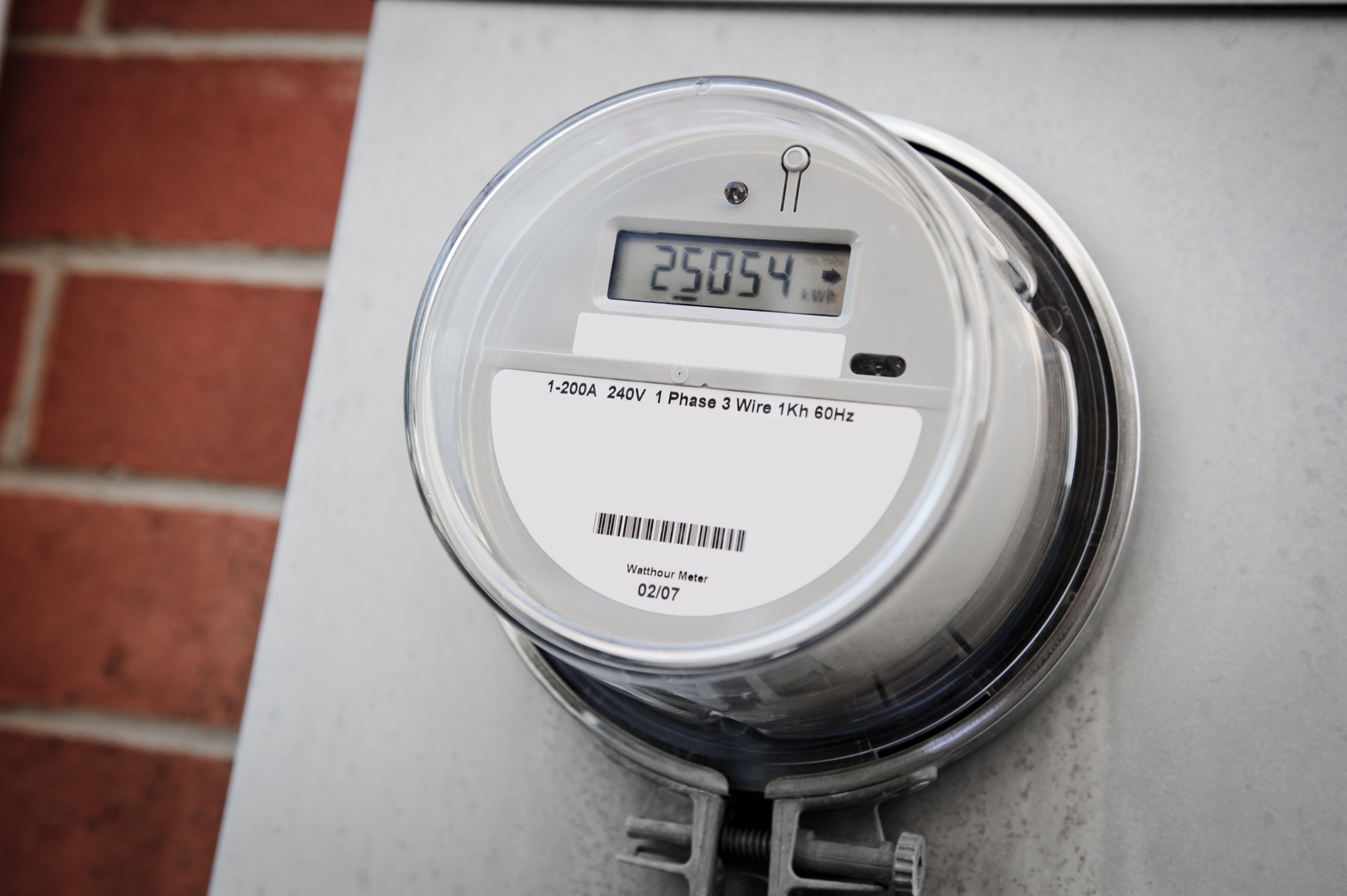
#6: Your energy bills will go up
Energy bills are already close to a two-decade high, so an in-ground pool will only add to this. For example, you could pay an extra $500 to $2,000 per year in utility bills for the additional electricity used, according to HomeAdvisor.com.
If you have a pool that's heated you'll spend an extra $120 to $850 per month, with propane powered heaters being especially pricey.

#7: You might get sick
Ear and respiratory infections, rashes and diarrhea are often caused by exposure to contaminated water found in swimming pools, hot tubs, water parks and other public swimming spaces, according to the Centers for Disease Control (CDC).
So what can pool owners do to avoid water-related illnesses? Firstly, try not to let people that are ill swim in the pool. Regular pool maintenance is also critical to help prevent bad germs from making you, your family and friends sick.
And when buying a new home with a swimming pool, you should also get it inspected to ensure it meets state and/or federal safety regulations.
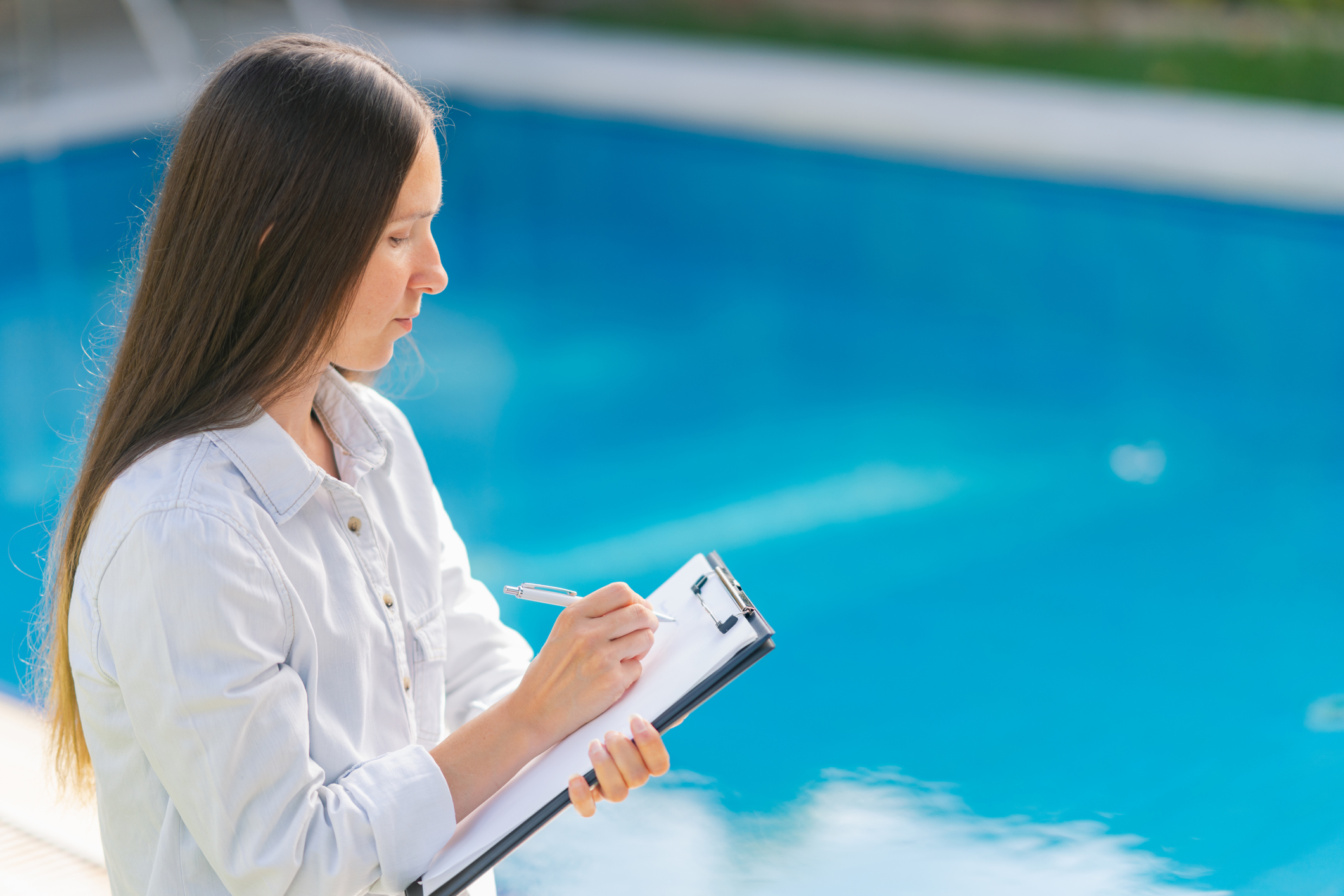
#8: Home buyers need to hire a separate pool inspector
Maria Zamora, a real estate agent based in Addison, Texas recommends hiring a certified licensed pool inspector to do a comprehensive check that includes a leak detection test within the shell of the pool.
A pool inspector can also examine the operating systems (both plumbing and electrical), the pool's interior surface, main drain and deck surfacing, Zamora adds. This person should also be able to identify any federal, state or local issues pertaining to fencing, as well as any other safety-related problems.
You can find a certified pool inspector in your area by using InterNACHI's "Find an Inspector" search tool. Enter your home address, then click on the advanced search dropdown and select "pool/spas." Hit enter. You'll get search results for certified pool inspectors within a 10 to 50-mile radius of your home.
Zamora says buyers should also purchase a home warranty that includes coverage for any major pool repairs.
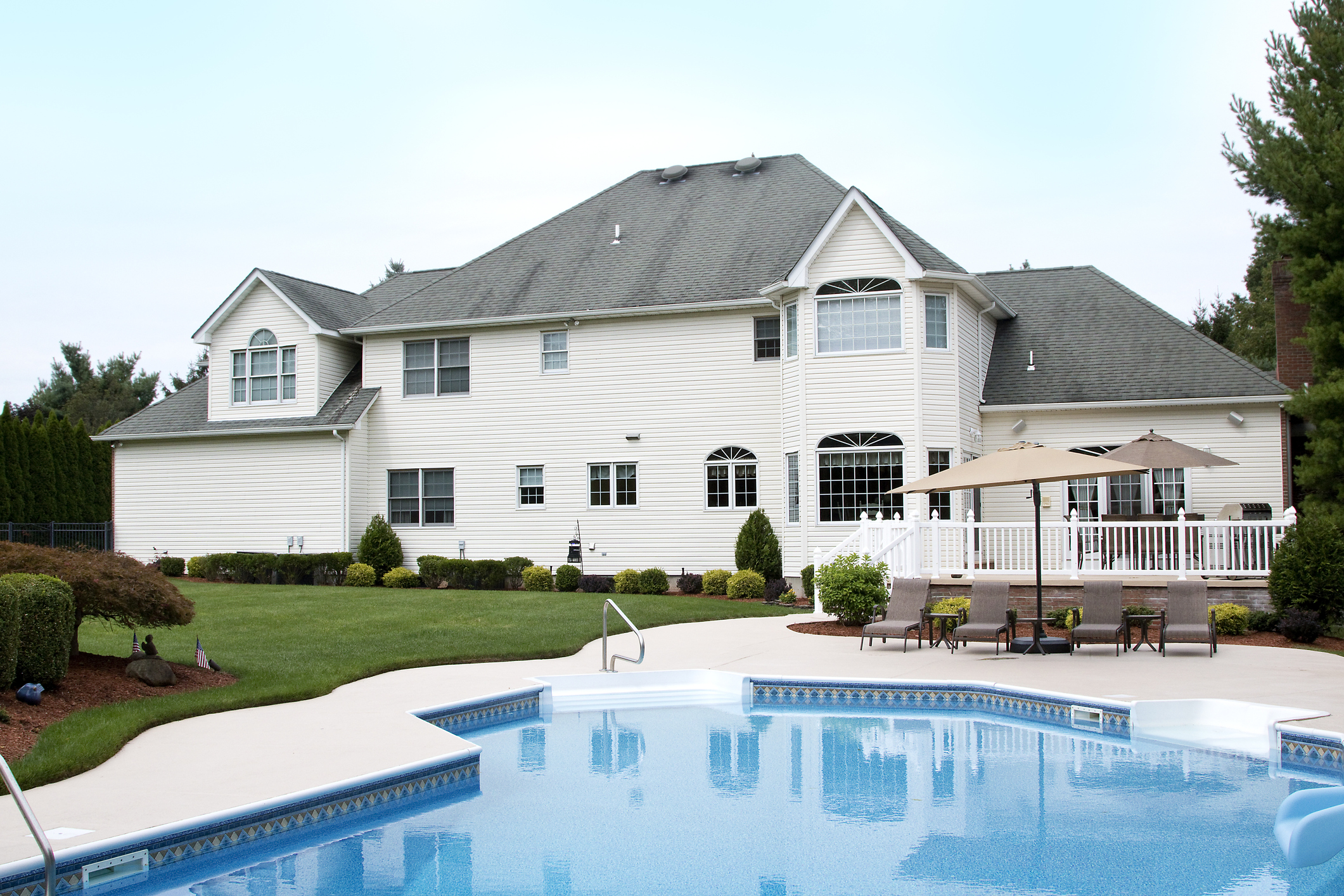
#9: When the kids grow up, the novelty wears off
For families with young children, having a home with a pool can be a great source of recreation during summer breaks. However, by the time the kids hit high school the backyard oasis is typically used a lot less, and yet the maintenance fees and related costs continue to add up.
To fill a standard in-ground pool with gravel or dirt averages between $4,500 and $6,250, according to HomeAdvisor.com. It's cheaper to use gravel (about $5 to $8 per cubic yard), but it can settle over time making the ground above it less stable, HomeAdvisor.com warns.
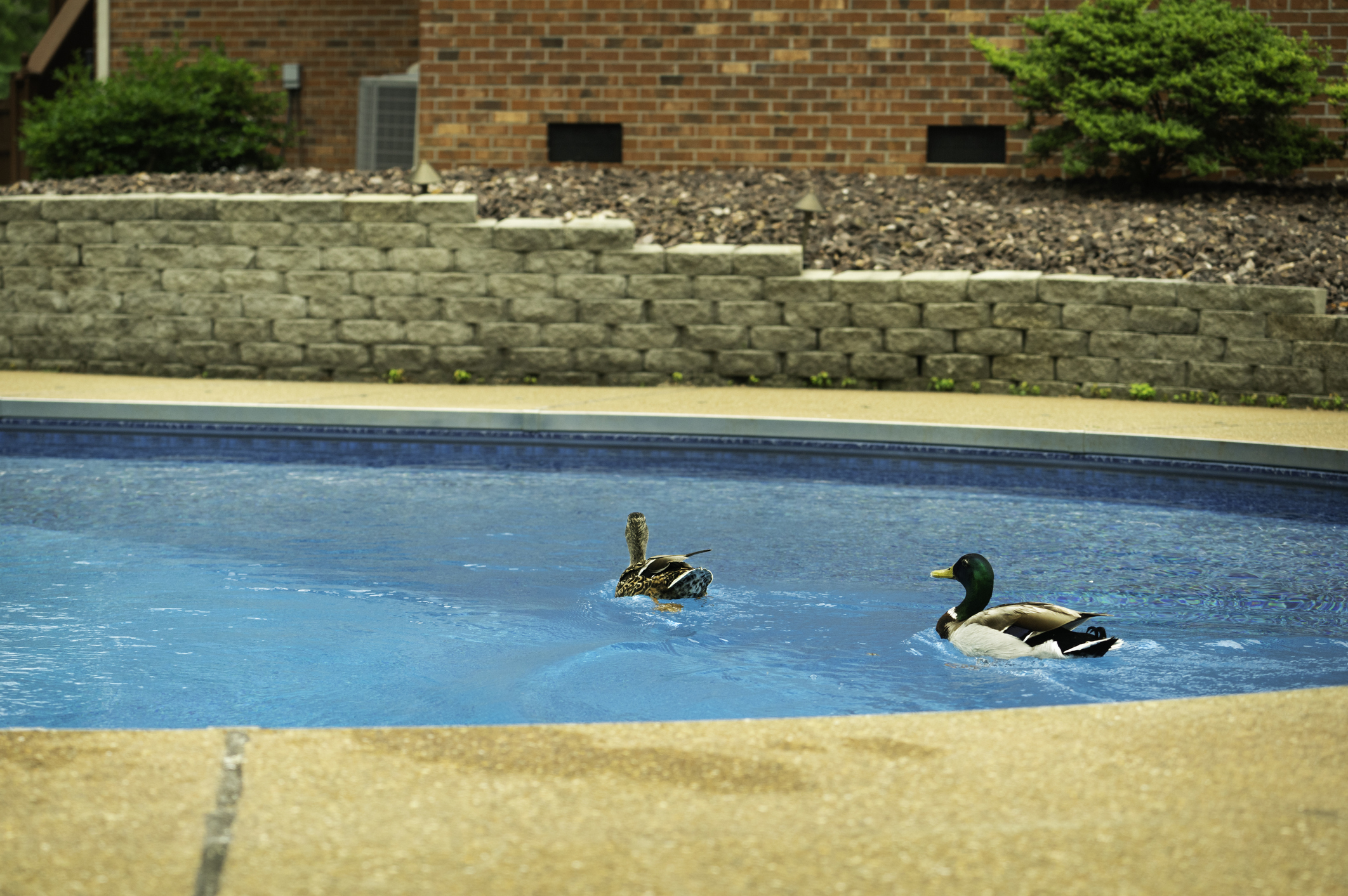
#10: Water attracts insects and wildlife
Mosquitoes and water bugs are drawn to swimming pools, especially during peak season. Skimming the pool's surface helps but is time-consuming and detracts from the actual use of the pool. Another solution is following a maintenance schedule to deter the growth of algae along walls, which many bugs are attracted to.
It's also not uncommon for homeowners in some areas to find dead animals floating in the water overnight. While most don't pose a health risk to humans, this isn’t a problem most of us want to deal with.
A few wild animals will pose a risk, however. For example, raccoons can carry parasites and if one happens to enter your pool and contaminate the water, it could lead to severe neurological illness in humans, especially children, the CDC says. Birds, particularly ducks and geese, can also dirty a pool with their droppings, which can lead to illnesses caused by Salmonella and E. coli.
In states such as Florida, alligators and snakes can obviously pose a threat too. This is another reason why it's important to install fencing around your pool to help keep wildlife at bay.
Profit and prosper with the best of Kiplinger's advice on investing, taxes, retirement, personal finance and much more. Delivered daily. Enter your email in the box and click Sign Me Up.

Browne Taylor joined Kiplinger in 2011 and was a channel editor for Kiplinger.com covering living and family finance topics. She previously worked at the Washington Post as a Web producer in the Style section and prior to that covered the Jobs, Cars and Real Estate sections. She earned a BA in journalism from Howard University in Washington, D.C. She is Director of Member Services, at the National Association of Home Builders.
- Vaishali VaruContributor
- Donna LeValleyRetirement Writer
-
 Dow Adds 1,206 Points to Top 50,000: Stock Market Today
Dow Adds 1,206 Points to Top 50,000: Stock Market TodayThe S&P 500 and Nasdaq also had strong finishes to a volatile week, with beaten-down tech stocks outperforming.
-
 Ask the Tax Editor: Federal Income Tax Deductions
Ask the Tax Editor: Federal Income Tax DeductionsAsk the Editor In this week's Ask the Editor Q&A, Joy Taylor answers questions on federal income tax deductions
-
 States With No-Fault Car Insurance Laws (and How No-Fault Car Insurance Works)
States With No-Fault Car Insurance Laws (and How No-Fault Car Insurance Works)A breakdown of the confusing rules around no-fault car insurance in every state where it exists.
-
 No-Fault Car Insurance States and What Drivers Need to Know
No-Fault Car Insurance States and What Drivers Need to KnowA breakdown of the confusing rules around no-fault car insurance in every state where it exists.
-
 7 Frugal Habits to Keep Even When You're Rich
7 Frugal Habits to Keep Even When You're RichSome frugal habits are worth it, no matter what tax bracket you're in.
-
 How Much It Costs to Host a Super Bowl Party in 2026
How Much It Costs to Host a Super Bowl Party in 2026Hosting a Super Bowl party in 2026 could cost you. Here's a breakdown of food, drink and entertainment costs — plus ways to save.
-
 3 Reasons to Use a 5-Year CD As You Approach Retirement
3 Reasons to Use a 5-Year CD As You Approach RetirementA five-year CD can help you reach other milestones as you approach retirement.
-
 How to Watch the 2026 Winter Olympics Without Overpaying
How to Watch the 2026 Winter Olympics Without OverpayingHere’s how to stream the 2026 Winter Olympics live, including low-cost viewing options, Peacock access and ways to catch your favorite athletes and events from anywhere.
-
 Here’s How to Stream the Super Bowl for Less
Here’s How to Stream the Super Bowl for LessWe'll show you the least expensive ways to stream football's biggest event.
-
 The Cost of Leaving Your Money in a Low-Rate Account
The Cost of Leaving Your Money in a Low-Rate AccountWhy parking your cash in low-yield accounts could be costing you, and smarter alternatives that preserve liquidity while boosting returns.
-
 We're 62 With $1.4 Million. I Want to Sell Our Beach House to Retire Now, But My Wife Wants to Keep It and Work Until 70.
We're 62 With $1.4 Million. I Want to Sell Our Beach House to Retire Now, But My Wife Wants to Keep It and Work Until 70.I want to sell the $610K vacation home and retire now, but my wife envisions a beach retirement in 8 years. We asked financial advisers to weigh in.
